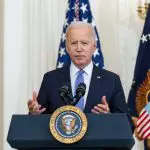The United States Agency for International Development (USAID) has become a hotbed of questionable spending practices that make even the most frivolous government expenditures look prudent. Under constant scrutiny during the Trump administration, a revelation has surfaced that perfectly illustrates the agency’s bizarre priorities. For the mere price tag of a staggering $50 billion a year, taxpayers are essentially funding a global crusade for what can only be described as “Queerocracy.” It begs the question: have we collectively lost our marbles?
It’s hard to ignore the absurdity when one finds out that taxpayers are on the hook for a cool million dollars aimed at promoting LGBTQ+ agendas overseas. While America grapples with pressing issues like rising crime rates, inflation, and crumbling infrastructure, bureaucrats at USAID seem devoted to a mission that feels more like a summer camp for social justice warriors than a serious foreign policy initiative. It’s almost as if they’ve taken the phrase “go big or go home” to a rather outrageous new level.
Transgender 'recognition' in Bangladesh, Kosovo, Guatemala — how one USAID employee shows what’s wrong with the embattled agency https://t.co/5GxZT1QOH8
— Andrea Jackson TV 📺🇺🇸 (@AJacksonTV) February 6, 2025
The push to export a rainbow-colored vision of governance is emblematic of an administration seemingly hell-bent on correcting the world’s moral compass, even when it means spending American tax dollars recklessly. One can’t help but picture some high-ranking USAID executive sitting around a conference table thinking, “Hmm, how can we spice up our budget meetings this year? I know! Let’s throw a massive sum of taxpayer money at LGBTQ+ initiatives in countries that don’t even recognize basic human rights!” Meanwhile, essential services at home seem to get slashed faster than a Hollywood budget.
Moreover, the impact of such funding raises eyebrows. Taxpayers might wonder what tangible returns they are getting for this generous investment. Is the intention to build bridges of understanding in countries that are far from embracing the values being pushed? Or is it simply a costly exercise in virtue signaling? Surely, those funds could be better directed toward real humanitarian needs, like clean water, food security, or education, rather than imposing cultural ideologies upon those who might not even want them.
Consequently, it’s no surprise that many Americans are expressing outrage at the way their hard-earned money is being allocated. The electorate is waking up, and they’re not particularly pleased to see a portion of their taxes being funneled into what amounts to an ideological crusade, all under the banner of “international development.” It’s a classic case of government overreach, showcasing how easily good intentions can devolve into misguided priorities, leaving regular Americans scratching their heads as to how they got roped into funding a questionable global agenda.




